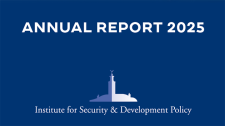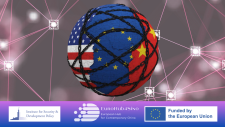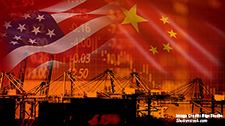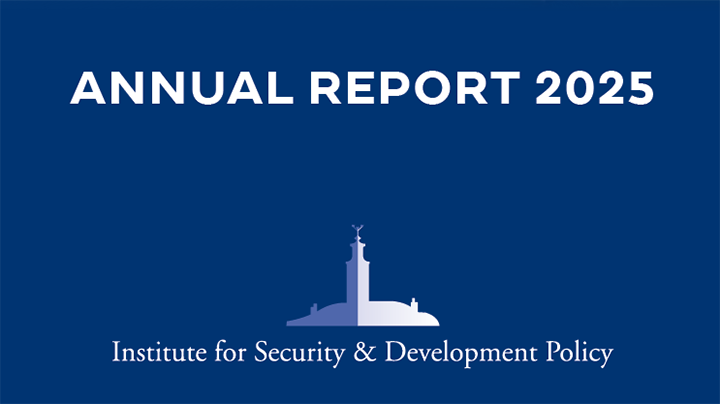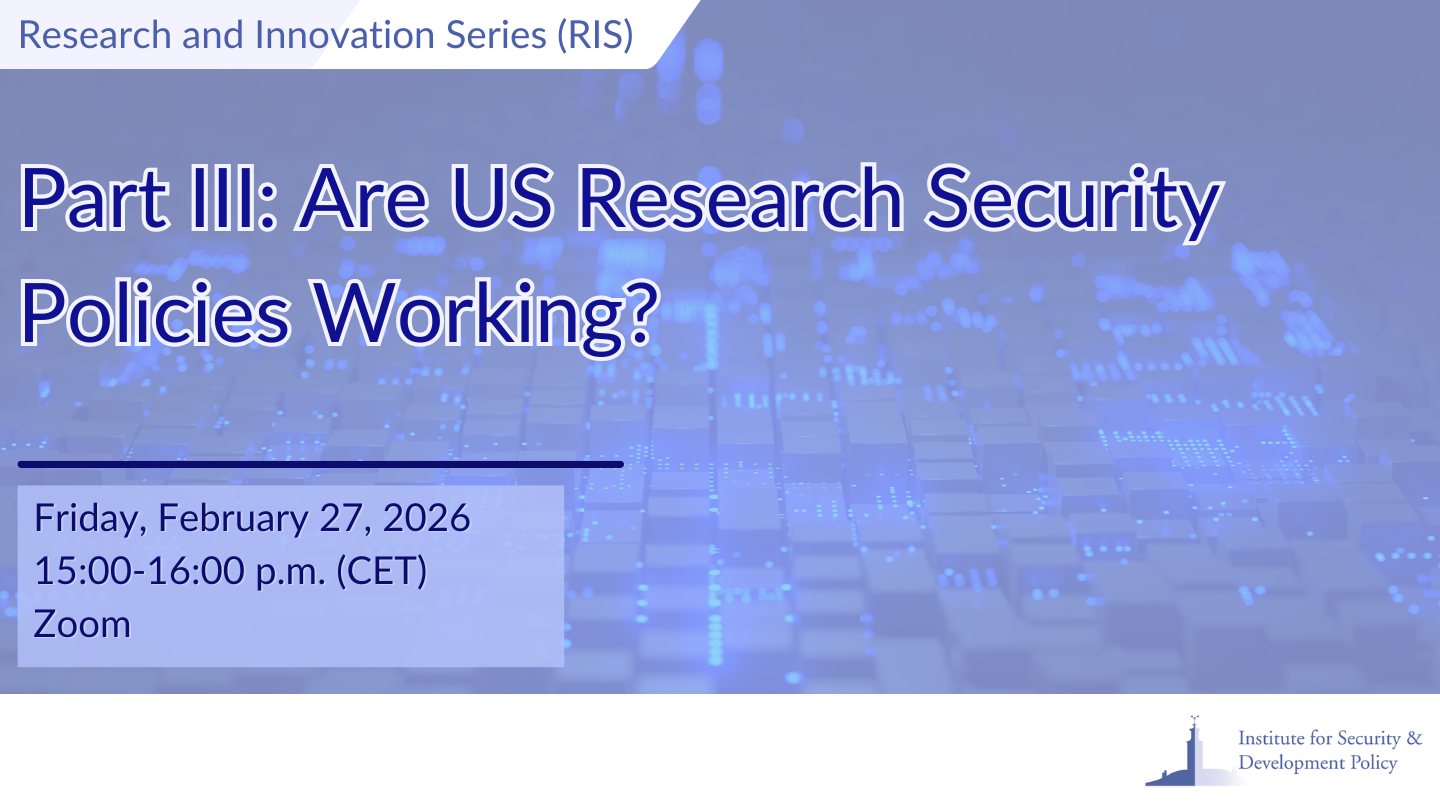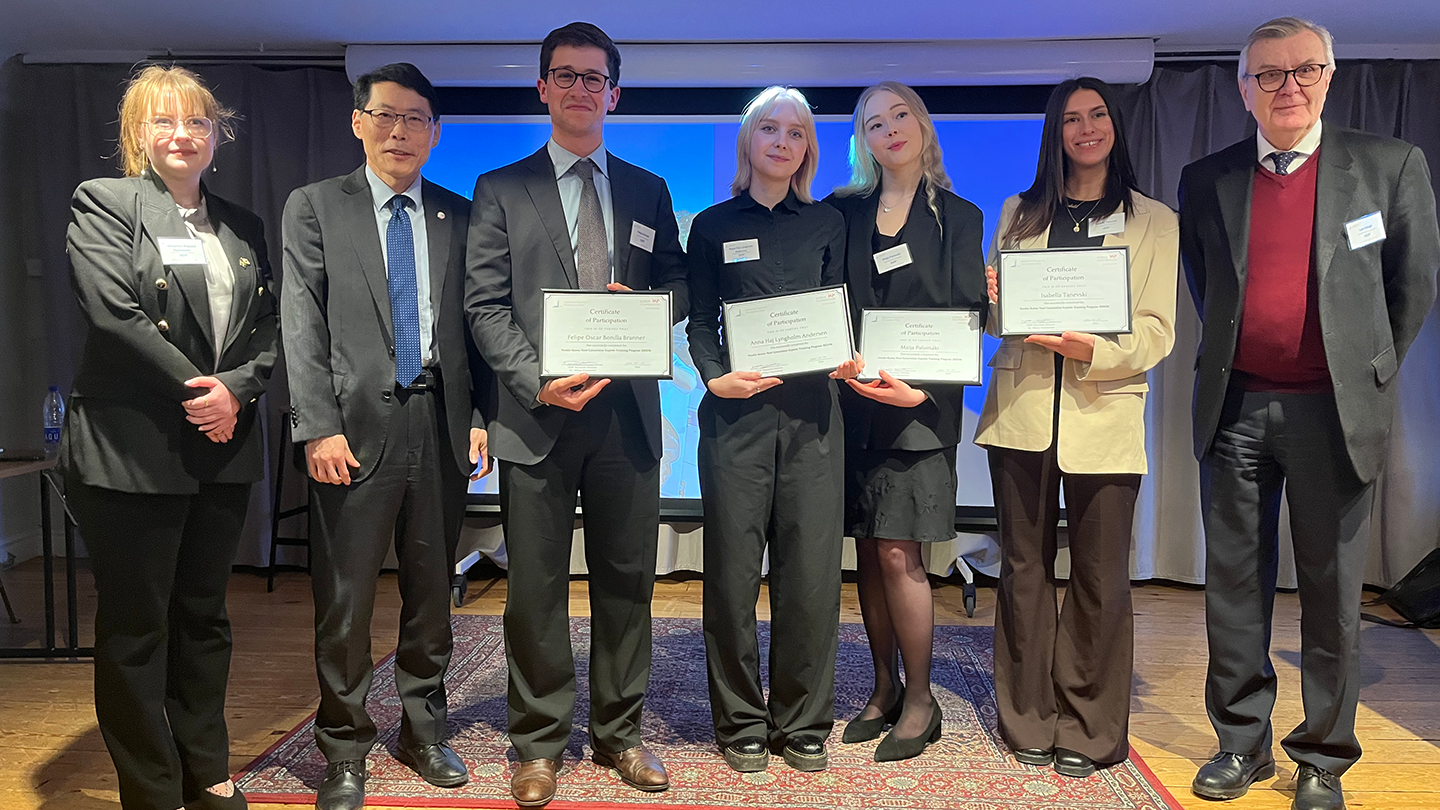-

Taiwan in the Hidden War: The Contest for Technological Sovereignty Against Infiltration
This special volume, edited by Yi-Chieh Chen and Niklas Swanström, presents a comprehensive examination of Taiwan’s approach to technology security challenges across multiple sectors and policy domains. The contributors in this volume, drawn from academic institutions and government agencies, offer diverse perspectives on the challenges Taiwan faces and the strategies it has developed to address them. The volume is structured to provide both sectoral analysis and cross-cutting themes that illuminate the broader patterns of Taiwan’s technology security challenges. The contributors have sought to present a balanced assessment that acknowledges both the successes and limitations of Taiwan’s approach while identifying areas where further development may be necessary. Read and download this special volume here.
-
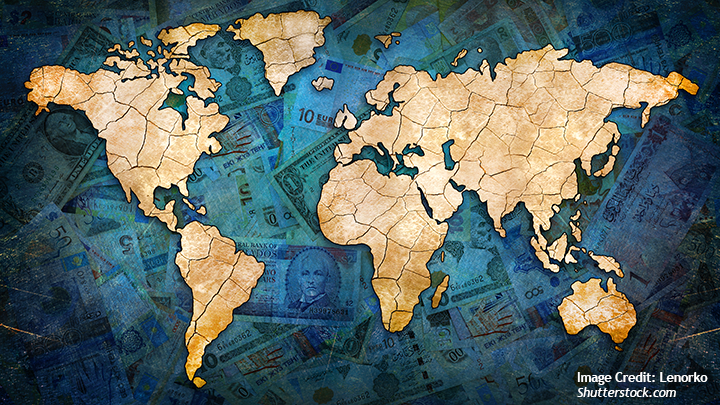
Changing Geometries: The Rise of a Middle-Power Tech Triangle
This issue brief by Jagannath Panda and Tristan Eng analyzes the significance of the Australia–Canada–India Technology and Innovation (ACITI) Partnership as a middle power. They argue that the ACITI’s importance lies in its function as a risk-diversification platform, allowing participating states to expand cooperation and resilience while maintaining ties with major powers. However, the partnership’s broad agenda risks diluting its impact unless members prioritize concrete initiatives and align them with existing regional frameworks. ACITI therefore serves as a test case for whether flexible middle-power coalitions can deliver practical outcomes in an increasingly fragmented global order, write Panda and Eng. Read and download this issue brief here.
-

What I heard in Munich: ‘We Europeans need a plan’
Anna Wieslander writes about her experience of attending the 2026 Munich Security Conference (MSC). She writes that it was a stunning moment at the MSC this past weekend, when German Chancellor Friedrich Merz, French President Emmanuel Macron, and British Prime Minister Keir Starmer entered the stage side by side to launch the “Global Europe” initiative. Designed for Europe to navigate with confidence and capabilities in an increasingly multipolar world, the initiative contained ground-breaking, action-oriented proposals along four pillars: innovation, energy security, military capabilities, and societal resilience. She further writes that gone was the mutual grouchiness of the Brexit years—the leaders of the so-called “E3” now appeared laser-focused on bridging difficulties to build joint strength, thereby inspiring others to follow. Read the full piece here.
-
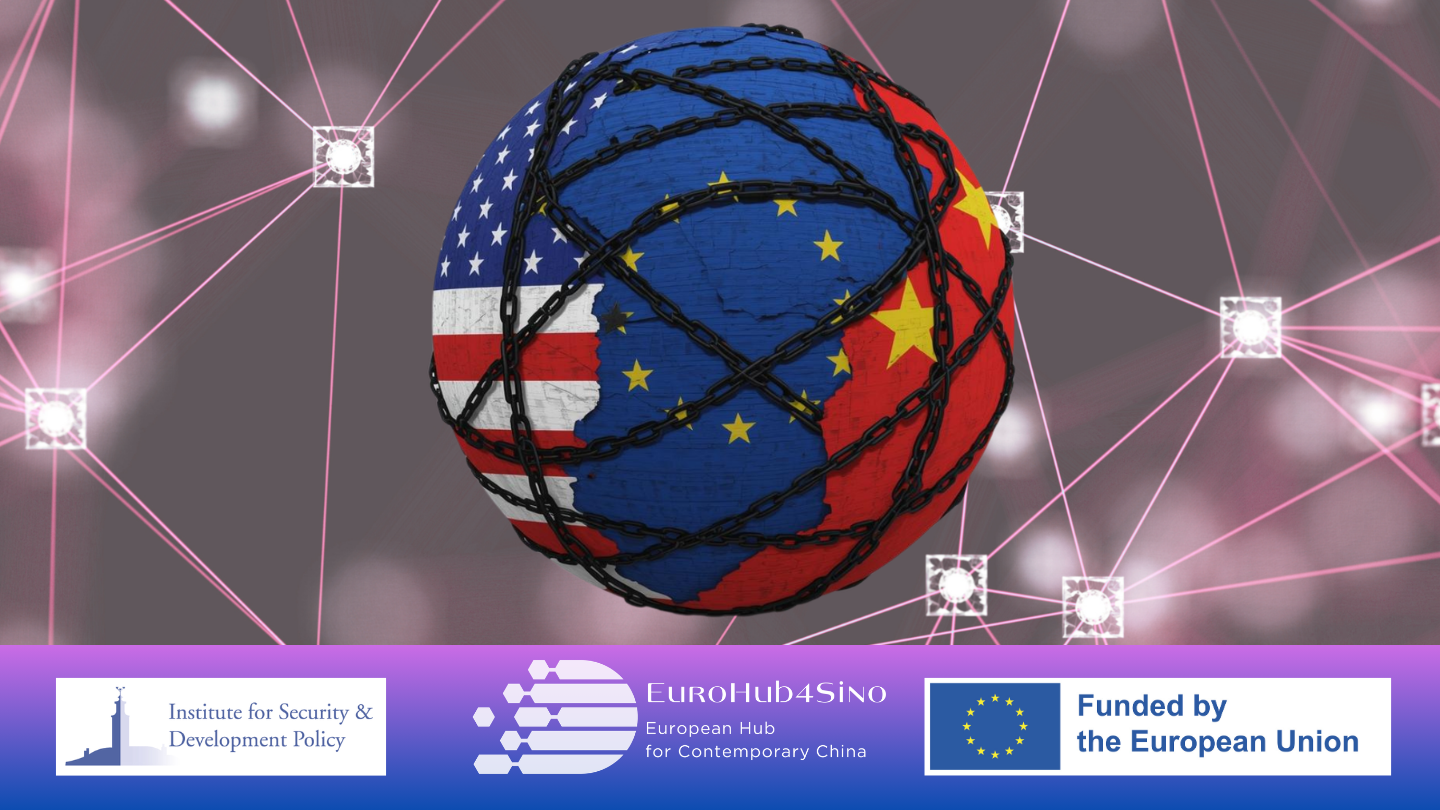
China’s PLA and Europe’s Supply Chain Trap: Navigating U.S. Pressure and China’s Influence
Niklas Swanström writes that while the PLA does not maintain a direct military presence in Europe, its influence permeates through cyber capabilities, strategic investments, technology acquisition strategies, and supply chain dependencies. The emergence of a more aggressive and transactional U.S. approach toward China (and Europe), characterized by comprehensive decoupling efforts, technology restrictions, and demands for allied conformity, places the EU in an increasingly difficult position, writes Swanström. In this brief, he outlines the PLA’s evolving role, its impact on European security and industrial resilience, the complications arising from divergent transatlantic approaches, and policy recommendations for the EU to safeguard its strategic autonomy while managing relations with both great powers. Read and download the policy brief here.
-
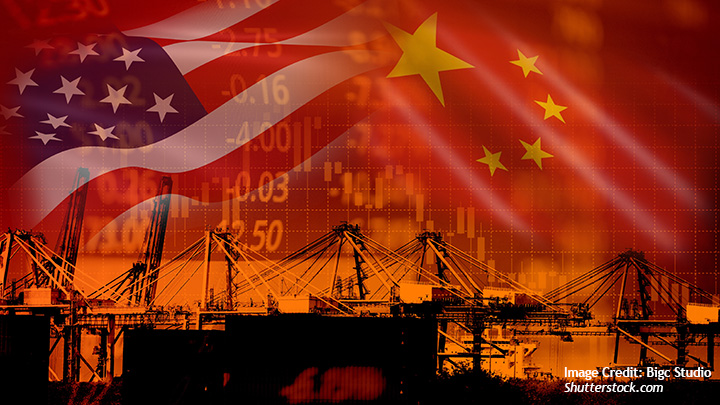
ARE RESEARCH SECURITY POLICIES IN THE US WORKING? A Case Study on Research Collaborations with PRC Defense Laboratories and US Federally Sponsored Research
This study by ISDP's non-resident Senior Fellow Jeffrey Stoff and his colleagues focuses on a narrower subset of US research collaborations with PRC entities that unambiguously pose critical risks to US national security, based on surveys of scientific literature published from January 2019 through July 2025. Authors of this study examine the extent to which US institutions have engaged with national-level laboratories the PRC designates as defense laboratories and quantify the amount of federal research dollars provided to the US entities. The authors recognize that distinguishing a national defense laboratory in China from other national or provincial laboratories that support defense research may, in practice, be a semantic exercise. You may see and read this study here.
-

Is Academic Pressure & Declining Mental Health the New Normal For South Korean Youth?
Josephine Ørgaard Rasmussen writes that South Korea faces a youth mental health crisis rooted in relentless academic pressure and reinforced by cultural expectations. The Lee administration is already beginning to institutionalize steps to address the country’s high suicide rate and overall mental health crisis. While these reforms indicate progress, bigger structural and cultural change is essential, writes Rasmussen. By reducing the unrealistic and unfair academic pressure, dismantling the silence surrounding mental health, and ensuring access to equal treatment, South Korea can promise a better future for its future generations, writes Josephine Ørgaard Rasmussen. Read this piece here.
-
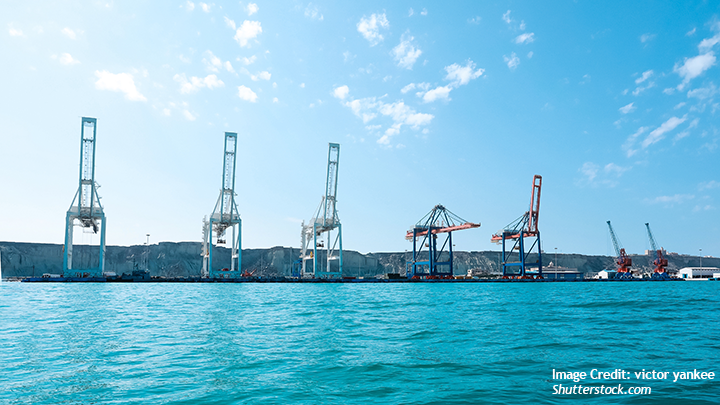
Gwadar’s Strategic Paradox: CPEC and China’s Geopolitics of Control by Other Means
This issue brief by Brendon Cannon addresses the puzzle by situating Gwadar within the “silk cage” framework and classical geopolitics. It argues that CPEC’s terrestrial logic advances China’s goal of Eurasian hegemony through connectivity and managed dependence, while its maritime logic emphasizes Indian Ocean access, infrastructure, and long-term presence along key sea lanes. The author further writes that China’s Global Security Initiative (GSI) institutionalizes protection, security cooperation, and corridor governance with Pakistan alongside investment, preserving dual-use optionality even in the absence of significant cargo volumes and profits. For policymakers, the brief clarifies why Gwadar’s value lies less in the port itself and more in what it means for China’s Eurasian and Indian Ocean hegemonic goals. Read and download the brief here.
-

The US wants a Europe-led NATO. Europeans should start planning it
Rachel Ellehuus and Anna Wieslander write in a commentary for EURACTIVE that the political heat between NATO allies over Greenland may have cooled for now, but Europeans should be wary of thinking that stability will prevail. They argue that the major lesson of the Greenland crisis is that shifting national interests between the US and Europe call for a European-led NATO sooner than previously envisioned, and even a five-to-ten-year transition may be optimistic. The newly released US National Defense Strategy, which calls for European allies to assume primary responsibility for Europe’s conventional defence, supports this claim, write Ellehuus and Wieslander. Read this piece here. As European leaders take to the podium at the Munich Security Conference this week, it is time they move beyond talk and get to work.
-
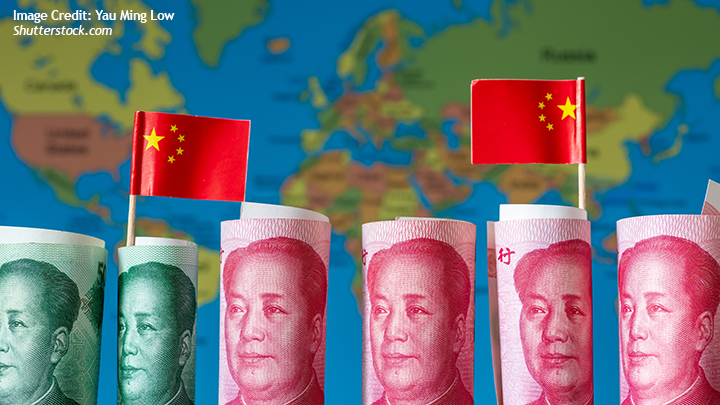
Corridors of Culture, Routes of Power: CPEC in Xi’s GCI
Jagannath Panda writes that after almost three years on hold, the foreign ministers of China and Pakistan recently announced plans to advance construction of the upgraded China-Pakistan Economic Corridor (CPEC), agreeing to broaden collaboration in industry, agriculture, mining, and green energy. The question that arises is whether China is exporting infrastructure or a worldview? The author writes that as Beijing speaks the language of civilizational respect and mutual learning, its roads, ports, and pipelines continue to reshape South Asia’s political economy. At the heart of this paradox sits Xi Jinping’s Global Civilization Initiative (GCI), which asserts a commitment to dialogue over dominance, operating in tandem with the hard steel and soft loans of the Belt and Road Initiative (BRI). Read and download this piece here.



